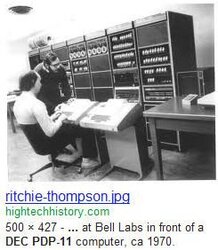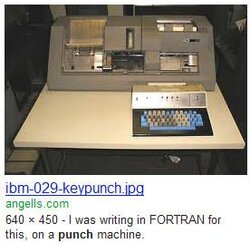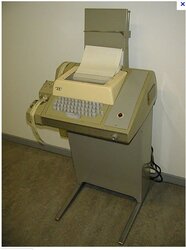Dunno - I spent lots of time behind the screen of an Apple IIe. It did save me some time a couple of times. When the teachers told you to write "I will not speak in class" 500 times, I asked if I could type it. "Yes". 3 lines of code later and I was done.The Mac pretty much sucked until 1986 when they came up with the Mac Plus (1 meg ram) with a 10 meg hard drive. That made it truly useful.




 Machine was dated 1983. Had a 300 baud modem built in but you could turn it down to 120? if that was too much speed for ya.
Machine was dated 1983. Had a 300 baud modem built in but you could turn it down to 120? if that was too much speed for ya.  Had a 128K memory cartridge that had a button cell battery to keep the RAM contents alive. Damned if that battery didn't chit without warning! I think I still have that machine somewhere......
Had a 128K memory cartridge that had a button cell battery to keep the RAM contents alive. Damned if that battery didn't chit without warning! I think I still have that machine somewhere...... !
!





